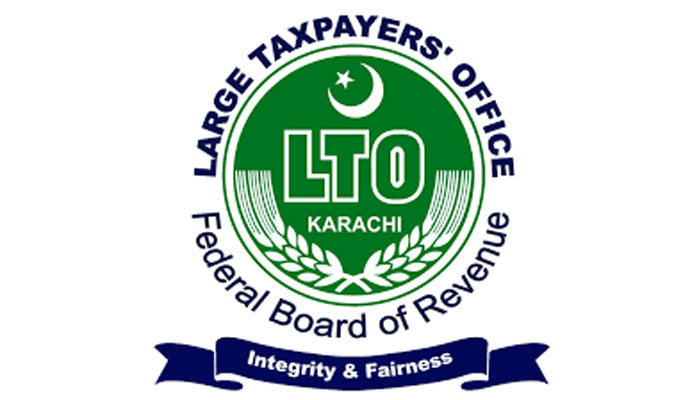Rs500bln tax demand created against sugar mills
KARACHI: The Large Taxpayers Office (LTO) Karachi has created Rs500 billion worth of tax demand against sugar mills during an ongoing audit exercise, sources said on Thursday.
The LTO Karachi has jurisdiction over 29 sugar mills. The tax offices started a composite audit of income tax and sales tax of sugar mills in June last year.
The sources said the tax office submitted an audit report to the FBR and that created the tax demand related to income and sales taxes.
According to the report, the tax office initiated the audit of sugar mills by selecting the cases for multiple years. The report explained the reasons for the increase in price of the commodity in the domestic market.
The production of refined sugar was more than the consumption of the commodity, according to the finding. Sugar prices increased internationally and the landed price of the commodity was around Rs93 per kilogram. The domestic price was also around this amount.
The FBR was informed that the sugar mills were dealing with benami investors, which resulted in manipulation in the domestic prices.
The benami investors purchase sugar from sugar mills around crushing season at lower prices in bulk and keep the stock at sugar mills. Later the investors in connivance with the sugar mills arrange controlled sales by receiving advance against sales in the market creating artificial demand that results in increase in price, according to the report. Sugar mills deliberately hide the identity of the buyers.
“They keep multiple accounts and transfer funds from one account to another, creating layers so that the funds inflow and outflow could not be identified,” the report said.
During the audit, the sugar mills failed to reconcile their sales with entries of bank statements, which were very high as compared with the amount of declared sales.
Since sugar mills failed to explain the transactions in bank statements the same amount had been treated as concealed income.
The tax office acquired third party information for conducting the audit. The third party information was obtained from banks, cane commissioner, Pakistan Customs, Securities and Exchange Commission of Pakistan, and anti-corruption department.
The audit also identified that about 90 percent of the commodities were sold to unregistered persons. The audit also examined issues, including subsidy received from provincial and federal governments, verification of exports to Afghanistan, advance from customers, suppression of sales in recovery ratio, and suppression of production by using excess lime.
The tax office also launched monitoring of sugar production by deputing tax officials at sugar mills. This monitoring has resulted in significant increase in crushing and production when compared with the last year.
-
 Meghan Markle, Prince Harry Friends Suggest Their Marriage 'isn't All It Seems'
Meghan Markle, Prince Harry Friends Suggest Their Marriage 'isn't All It Seems' -
 Andrew Handed Out 'classified' Information To Jeffrey Epstein
Andrew Handed Out 'classified' Information To Jeffrey Epstein -
 Margot Robbie Recalls Wild Party Days And Getting Kicked Out Of Clubs
Margot Robbie Recalls Wild Party Days And Getting Kicked Out Of Clubs -
 NASA's Hubble Space Telescope Discovers ‘Dracula Disk', 40 Times Bigger Than Solar System
NASA's Hubble Space Telescope Discovers ‘Dracula Disk', 40 Times Bigger Than Solar System -
 Annular Solar Eclipse 2026: Where And How To Watch ‘ring Of Fire’
Annular Solar Eclipse 2026: Where And How To Watch ‘ring Of Fire’ -
 Zayn Malik Explains Past Comments About Not Being In Love With Gigi Hadid
Zayn Malik Explains Past Comments About Not Being In Love With Gigi Hadid -
 Internet Reacts To 10 Days Flight Ban Over El Paso
Internet Reacts To 10 Days Flight Ban Over El Paso -
 YouTube Music Tests AI-powered ‘Your Week’ Recap To Summarise Listening Habits
YouTube Music Tests AI-powered ‘Your Week’ Recap To Summarise Listening Habits -
 Kelly Clarkson Ready To Date After Talk Show Exit?
Kelly Clarkson Ready To Date After Talk Show Exit? -
 Is AI Heading Into Dangerous Territory? Experts Warn Of Alarming New Trends
Is AI Heading Into Dangerous Territory? Experts Warn Of Alarming New Trends -
 Google Updates Search Tools To Simplify Removal Of Non-consensual Explicit Images
Google Updates Search Tools To Simplify Removal Of Non-consensual Explicit Images -
 Chilling Details Emerge On Jeffrey Epstein’s Parties: Satanic Rights Were Held & People Died In Rough Intimacy
Chilling Details Emerge On Jeffrey Epstein’s Parties: Satanic Rights Were Held & People Died In Rough Intimacy -
 50 Cent Gets Standing Ovation From Eminem In New 'award Video'
50 Cent Gets Standing Ovation From Eminem In New 'award Video' -
 Bad Bunny Delivers Sharp Message To Authorities In Super Bowl Halftime Show
Bad Bunny Delivers Sharp Message To Authorities In Super Bowl Halftime Show -
 Prince William 'worst Nightmare' Becomes Reality
Prince William 'worst Nightmare' Becomes Reality -
 Thai School Shooting: Gunman Opened Fire At School In Southern Thailand Holding Teachers, Students Hostage
Thai School Shooting: Gunman Opened Fire At School In Southern Thailand Holding Teachers, Students Hostage




